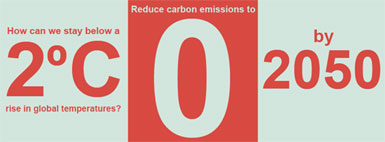75% of world emissions are now covered by national climate targets, but that still falls short of keeping world temperatures under 2C.
Right now, we are on track to reach about 4.8C by 2100 – an unlivable planet.
The 2015 Global Climate Legislation Study comes out of Grantham Research Institute on Climate Change, where the Apollo Program on Climate Change is being incubated.
The good news is researchers believe we are now at the point where we can be more confident of pledges countries make at this year’s Climate Summit, says lead researcher Michal Nachmany. "While collectively these pledges are unlikely to be consistent with the international goal of avoiding global warming of more than 2C, the existence of national legislation and policies should provide the opportunity for countries to strengthen the ambition of their emissions cuts after the summit."

In 1997 – when the Kyoto Protocol was signed – there were 54 climate laws, but now there are 804 in 98 countries. And the number has doubled since 2009, when there were 426 laws. Countries that have passed these bills produce 93% of global emissions.
In fact, the number of climate laws and policies has been doubling about every five years, showing that international climate change negotiations are indeed leading to national action in most countries, they say.
75 countries plus the European Union have policies that limit emissions and 64 countries have policies to help them adapt to climate change impacts.
47 countries, including the 28 member state European Union, have introduced carbon pricing through a carbon tax or cap-and-trade system.
The study will be presented this week in Bonn, Germany, where a climate summit is taking place. Delegates are trying to whittle down 80 pages of negotiations text they ended up with after the last meeting in Lima, Peru.
The reason we need such steep, difficult emissions cuts is because the world has waited far too long to take action. Had we acted at the first Rio Summit in 1992, it would have been fairly easy.
Read the 2015 Global Climate Legislation Study and check out the profiles of each country:
